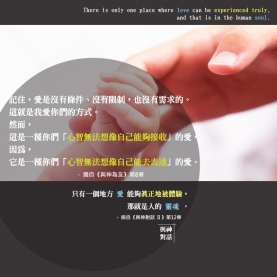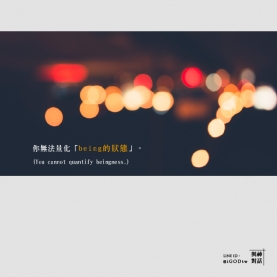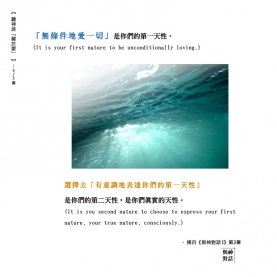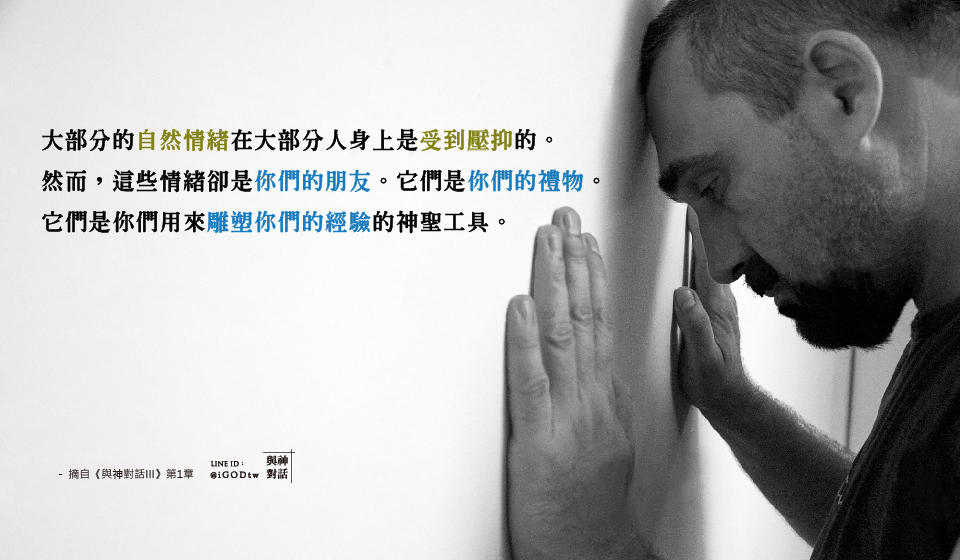
聽神談【關於人類的自然情緒:「愛」】
愛(love)是一種自然的情緒。當一個孩子可以正常且自然地,沒有限制、沒有條件、毫無禁止或困窘地表達和接受愛,他則不需要其他任何東西。因為能以此方式對自己表達和接受的愛之喜悅,即已足夠。然而,已經是有條件的、被限制的、被規範和儀式所捆綁和扭曲的、被操縱的、被保留的愛,變成了不是自然的愛。
那些被教導而覺得他們的「自然的愛(natural love)是不好的,表達出來是個錯誤的行為,甚至根本不應該被表達出來」的孩子們,長大後會很難適當地處理好跟「愛」有關的事情。
愛如果持續地被壓抑,會變成佔有(possessiveness),這是一種非常不自然的情緒。
人們會因佔有而殺人。而引發戰爭,而毀城滅國。
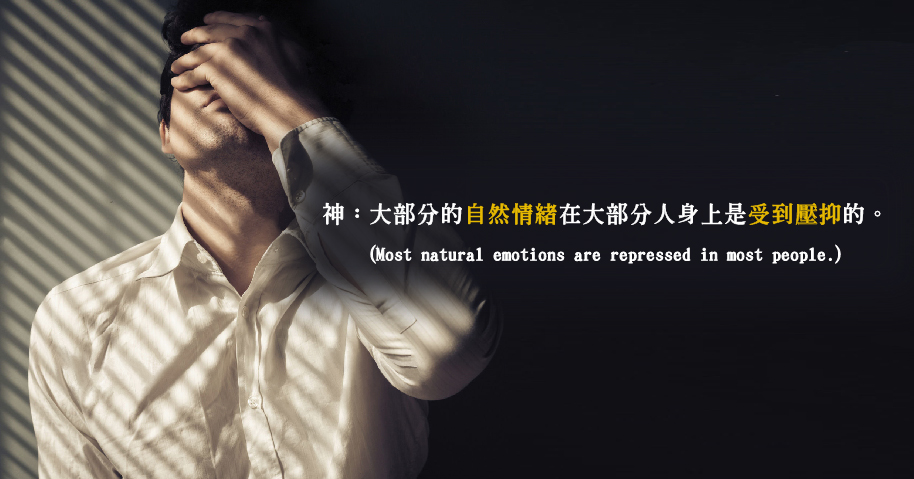
當這些自然的情緒被壓抑,就會產生不自然的反應和回應(unnatural reactions and responses)。而大部分的自然情緒在大部分人身上是受到壓抑的(Most natural emotions are repressed in most people.)。然而,這些情緒卻是你們的朋友。它們是你們的禮物。它們是你們用來雕塑你們的經驗的神聖工具(your divine tools with which to craft your experience)。
你們都與生俱有這些工具。它們是用來幫助你們周旋和跨越人生的工具。
尼爾:那為什麼大部分人的這些情緒都被壓抑呢?
他們被教導要壓抑這些自然情緒。他們被告知要如此。
尼爾:被誰教要如此?
他們的父母。那些養育他們的人。
尼爾:為什麼?他們為什麼要這樣做?
因為他們的父母教導他們要這樣,而他們的父母又是被他們父母的父母告知要這樣,代代相傳。
摘自《與神對話III》第1章
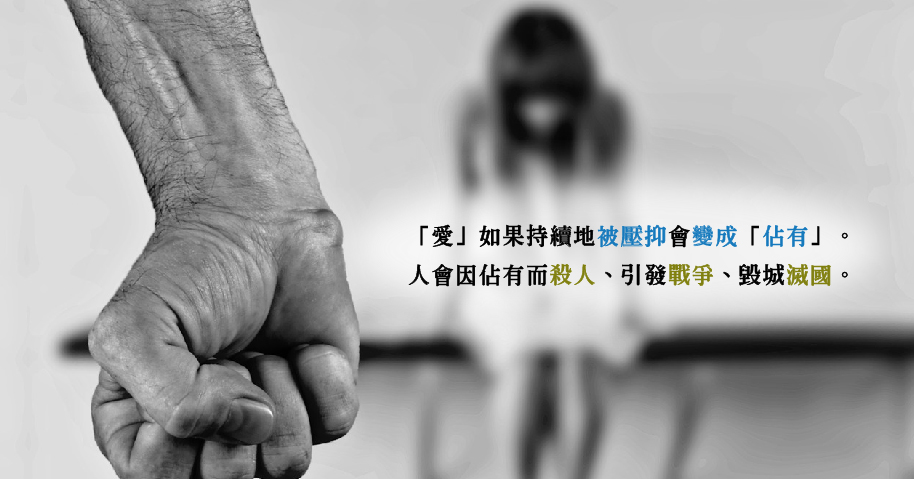
Love is a natural emotion. When it is allowed to be expressed, and received, by a child, normally and naturally, without limitation or condition, inhibition or embarrassment, it does not require anything more. For the joy of love expressed and received in this way is sufficient unto itself. Yet love which has been conditioned, limited, warped by rules and regulations, rituals and restrictions, controlled, manipulated, and withheld, becomes unnatural.
Children who are made to feel that their natural love is not okay—that it is wrong to express it, and, in fact, that they shouldn't even experience it—will have a difficult time appropriately dealing with love as adults.
Love that is continually repressed becomes possessiveness, a very unnatural emotion.
People have killed because of possessiveness. Wars have started, nations have fallen.
And so it is that the natural emotions, when repressed, produce unnatural reactions and responses. And most natural emotions are repressed in most people. Yet these are your friends. These are your gifts. These are your divine tools, with which to craft your experience.
You are given these tools at birth. They are to help you negotiate life.
Neale: Why are these emotions repressed in most people?
They have been taught to repress them. They have been told to.
Neale: By whom?
Their parents. Those who have raised them.
Neale: Why? Why would they do that?
Because they were taught by their parents, and their parents were told by theirs.







